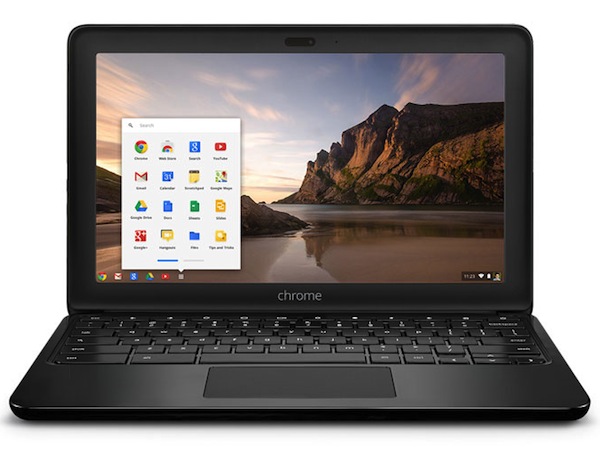'Smaug' Could Be The First Tegra X1-Based Chromebook To Come To Market
Google engineers recently added support for Nvidia's high-end mobile chip (Tegra X1), to Coreboot, an open source alternative to the BIOS firmware we've seen in most Windows PCs.
Coreboot is what Google uses in all Chromebooks because it's lightweight and more secure than the old BIOS firmware. It's also "free" (as in freedom) software, which reduces the chance for it to be backdoored.
Patrick Georgi from the Google's Chromium team added some new software commits with the name "Tegra T210" in them, which is the alias for Tegra X1.
After Tegra X1 support was added in Coreboot, support for a Tegra X1-based board was added with the code-name "Smaug," as well. This board also supports Chromium OS, which means Smaug could be part the first Tegra X1-powered Chromebook to come to market. It would also be the first 64-bit ARM-based Chromebook to ship, considering Tegra X1 is based on the ARMv8-A architecture.
We haven't seen nearly as many ARM-based Chromebooks as we should have seen by now, considering that Chrome OS is chip architecture-agnostic. The OS is designed primarily to run web-based applications (and some lightweight local apps); it can't run legacy programs written for another specific architecture.
Part of the reason for that is that ARM chips haven't been powerful enough for use in low-end notebooks, which is why some of the most popular Chromebooks until more recently were those powered by Intel's Haswell-based Celeron chips.
However, Intel is now moving away from making Celerons and Pentiums based on the more powerful "Core" (Haswell, Broadwell, etc.) micro-architecture. Instead, the company is rebranding mobile Atom chips as Celeron and Pentium. This gives ARM chips a much better chance to push back into Chromebooks, where they can compete toe-to-toe against the Atom-based Celerons and Pentiums, or even beat them on performance and power consumption.
Get Tom's Hardware's best news and in-depth reviews, straight to your inbox.
The Acer Chromebook 13, which was powered by another Nvidia chip, the Tegra K1, claimed the best battery life out of any Chromebook on the market (13 hours). Future Tegra X1-based notebooks could see either a further improvement in battery life or higher performance, especially on the graphics side thanks to the much more efficient Maxwell GPU architecture.
The Nvidia Tegra X1 has already been used in the Android TV-based Shield Console and the Shield Portable. Some car manufacturers also plan to use the chip for computer vision purposes and for their in-car media entertainment systems.
Follow us @tomshardware, on Facebook and on Google+.
Lucian Armasu is a Contributing Writer for Tom's Hardware US. He covers software news and the issues surrounding privacy and security.
-
2Be_or_Not2Be From the article: "It's also "free" (as in freedom) software, which reduces the chance for it to be backdoored."Reply
"Free" software doesn't mean it's guaranteed to be free of any problems/backdoors. If you think "free" is always free of issues, you should tell that to the Trojans! -
Doug Lord The Nvidia Tegra X1 has already been used in the Android TV-based Shield Console and theShield Portable.Reply
Are you sure???? I haven't heard of a Portable X1. -
Doug Lord The Nvidia Tegra X1 has already been used in the Android TV-based Shield Console and theShield Portable.Reply
Are you sure???? I haven't heard of a Portable X1. -
knowom Could be interesting, but what's the price and other specs is the real mystery it defiantly appears roomier than Shield Console too so could even be clocked slightly higher. I'm guessing it's going to be in $200-$300 range with as good or maybe slightly better specs to it.Reply
